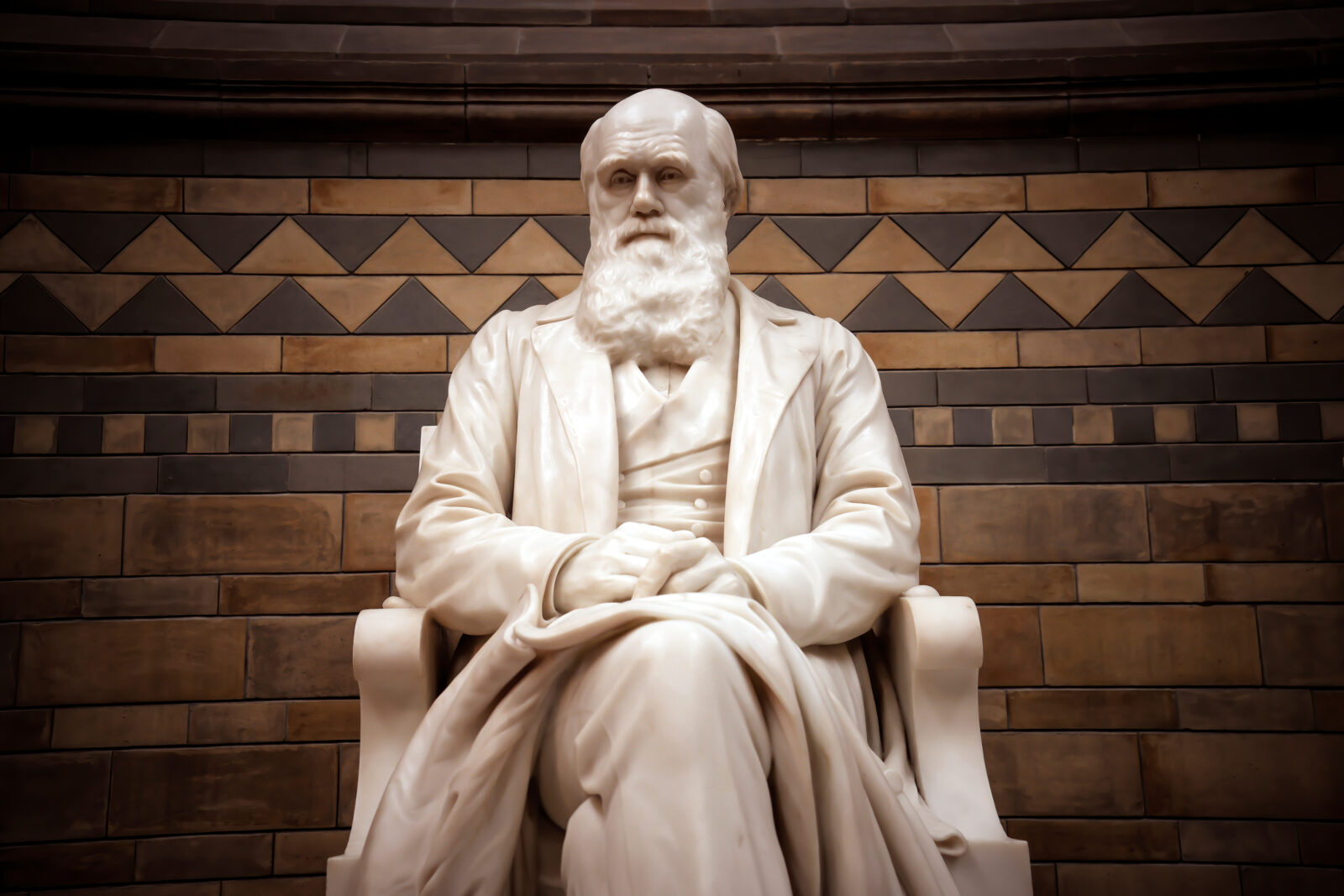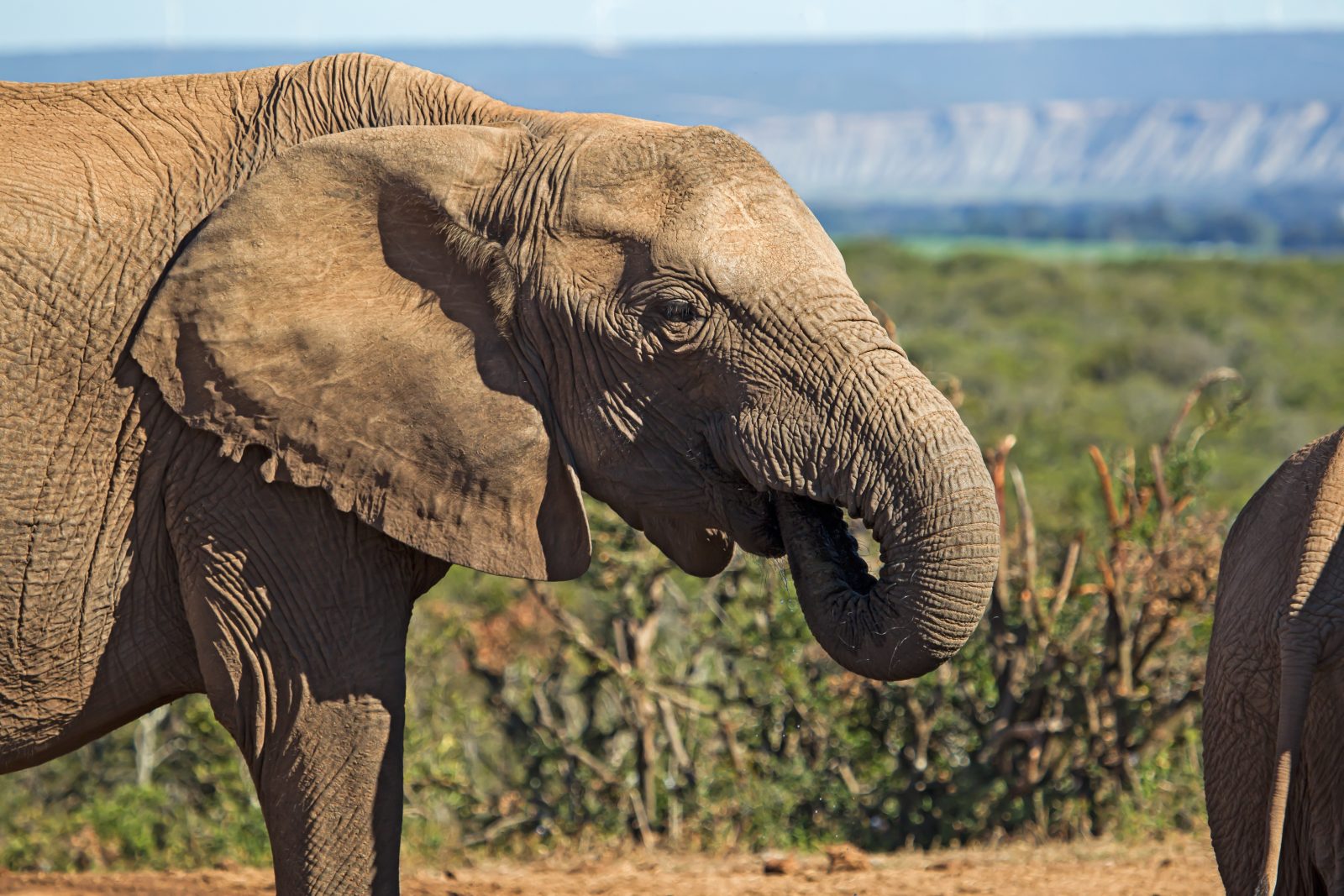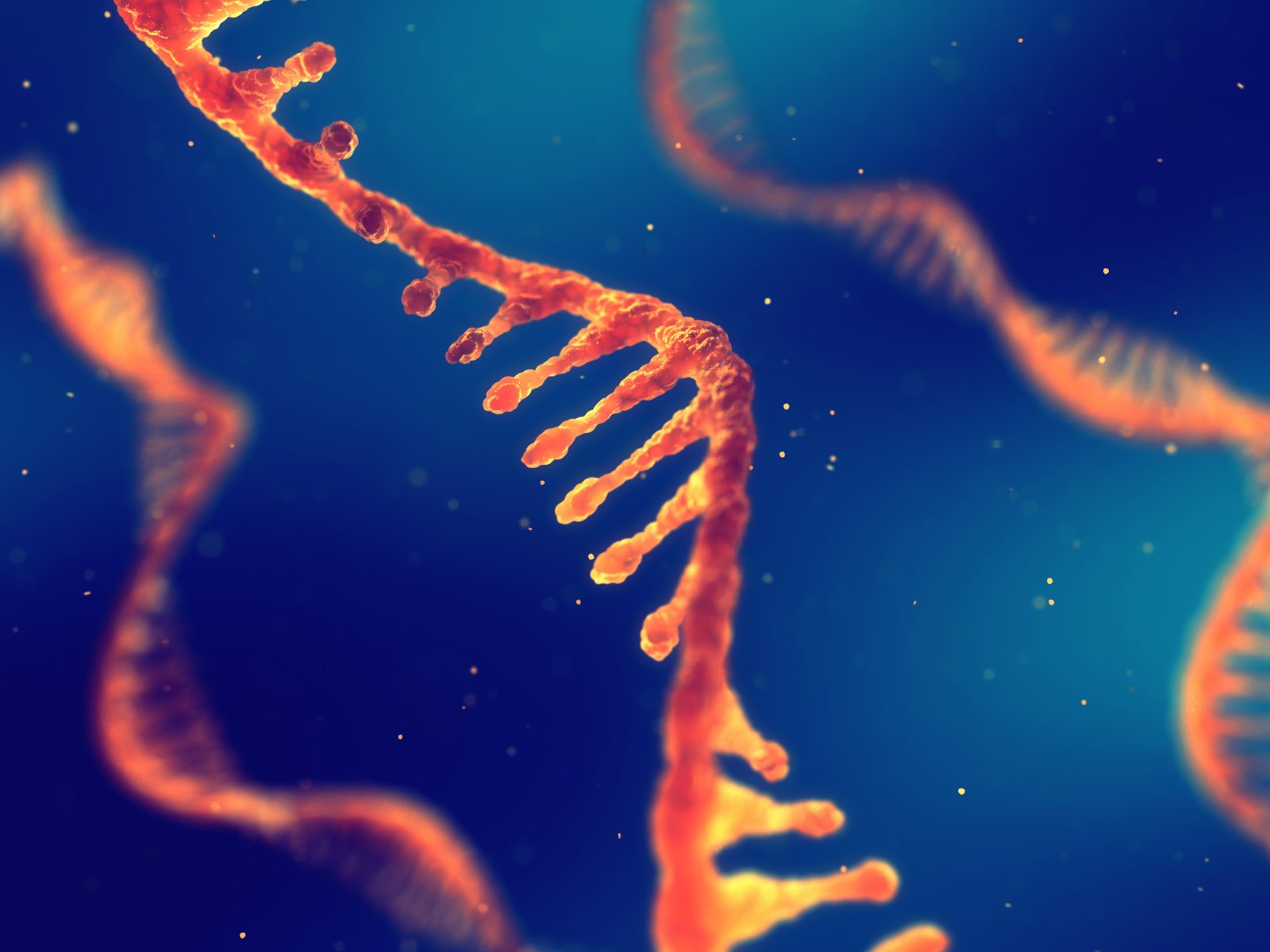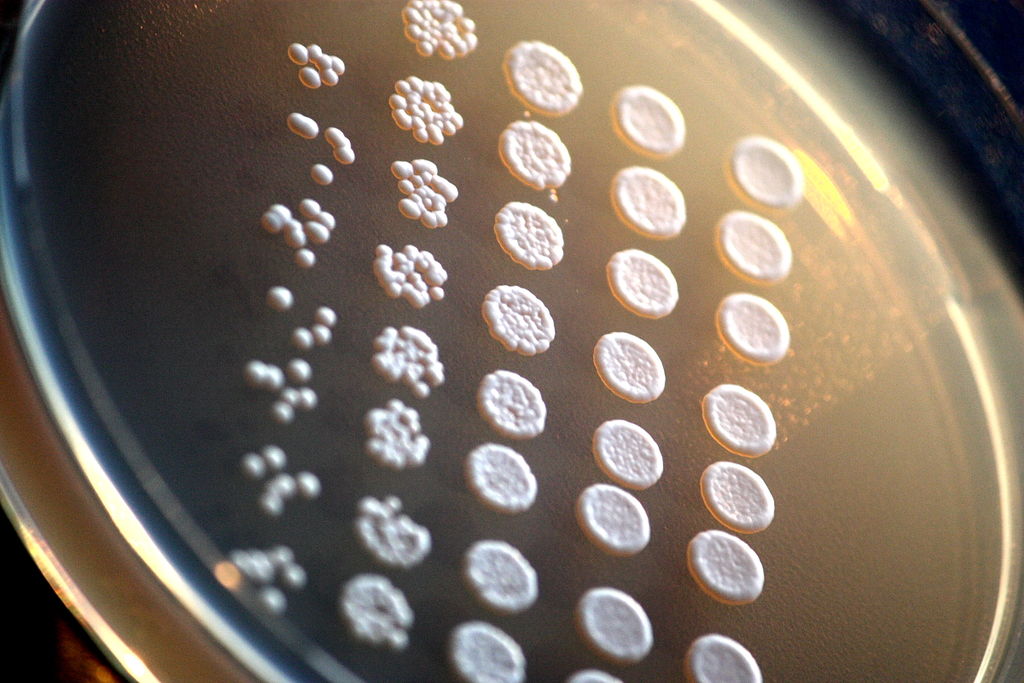


The Simple Life: Abiogenesis Gets Another Reality Check

Behe and Ramage: Evolution’s Limits and the Fingerprints of Design
Today’s ID the Future wraps up a debate over evolution and intelligent design between Lehigh University biologist Michael Behe and Benedictine College theologian Michael Ramage. Both Behe and Ramage are Catholic, and they carry on their conversation in the context of Catholic thinking about nature and creation, in particular the work of Thomas Aquinas and contemporary Thomist philosophers. Ramage seeks to integrate his Thomistic/personalist framework with modern evolutionary theory’s commitment to macroevolution and common descent. Behe doesn’t discount the possibility of common descent but lays out a case that any evolution beyond the level of genus (for instance, the separate families containing cats and dogs) cannot be achieved through mindless Darwinian mechanisms and, instead, would require the contributions of a designing intelligence. Behe then summarizes both the negative evidence against the Darwinian mechanism of change and the positive evidence in nature for intelligent design. This debate was hosted by Pat Flynn on his Philosophy for the People podcast, and is reposted here by his permission.

Michael Behe: Evolution, Devolution, Design
Today’s ID the Future features three recent Evolution News essays by Lehigh University biology professor and Darwin Devolves author Michael Behe, as read by host Andrew McDiarmid. In the first, nothing shows the feebleness of Darwinism quite so much as breathless stories about new results that turn out to be much ado about nothing. In this case, it’s some recent speculation about the rise of “lactase persistence” in many human adults. Then it’s onto malaria, much beloved of evolutionists, not for its lethality but as a demonstration of evolution in action. But Behe dissects the latest news story on the topic to show that the touted malaria evolution is, once again, malaria gnawing off the proverbial leg to achieve a niche advantage—that is, mere devolution. It’s akin, Behe says, to the rise of tuskless elephants in Africa, where having the devolutionary mutation that leaves an elephant tuskless renders the creature of no interest to elephant-slaying ivory poachers, thereby improving its chances of survival. In the third essay Behe makes a case for his favorite way of concisely describing what we detect when we detect intelligent design in biology. For a great collection of Dr. Behe’s essays, get a copy of his newest book, A Mousetrap for Darwin: Michael Behe Answers His Critics.

Origin-of-Life Mystery at the University of Tokyo, Pt. 2
Today’s ID the Future is Part 2 of physicist Brian Miller exploring a recent report from the University of Tokyo claiming a big breakthrough in origin-of-life research. As Miller and host Eric Anderson make clear, the university’s laboratory work on RNA, detailed in a recent Nature Communications article, involved the intelligent interference of the lab scientists and, despite this intelligent interference, the devolution of RNA rather than the evolution of increasing RNA sophistication. Miller says that it’s ironic that Steven Novella, a scientist committed to puncturing science hype, seems to have fallen for the hype surrounding this laboratory work. Miller and Anderson go on to discuss critiques of origin-of-life tall-tale claims, critiques coming Robert Shapiro, James Tour, and others. Life, Miller says, requires organizational blueprints and design logics already in place to battle against nature’s relentless tendency toward entropy. Without those sophisticated organizational blueprints already instantiated in living cells and sophisticated molecular machinery, natural forces appear utterly powerless to pull off the kind of creative design work required to move from non-life to life.

Did U of Tokyo Just Solve the Mystery of Life’s Origin?
On this ID the Future, Brian Miller, research coordinator for the Center for Science & Culture, reports on laboratory research recently presented in Nature Communications and in a University of Tokyo press release— research that supposedly provides dramatic “new insights into the possible origin of life,” and specifically “the molecular evolution of RNA.” The popular press picked up on these claims and ran with them, including in this May 5 Quanta article that breathlessly reported, “When researchers gave a genetic molecule the ability to replicate, it evolved over time into a complex network of ‘hosts’ and ‘parasites’ that both competed and cooperated to survive.” Miller says nothing remotely this dramatic occurred in the experiment. He insists there were no great revelations from this laboratory work, aside perhaps from it further corroborating the view that precisely orchestrated interventions of an intelligent designer (in this case, that of the lab researchers) are required in order to make any headway on the road from non-life to life. But as Miller’s conversation with host Eric Anderson suggests, even that might be to exaggerate what the University of Tokyo experimenters accomplished, since the RNA “evolution” they achieved was actually devolution. Tune in as Miller and Anderson break it down. And for more, check out Miller’s Evolution News article on the subject.

Two Recent Papers Buttress Behe’s Darwin Devolves Thesis
On today’s ID the Future Darwin Devolves author and biologist Michael Behe discusses two recent technical papers that the news media billed as dramatic evidence for evolution. As Behe explains in his conversation with host Eric Anderson, a careful look at the papers themselves shows that both cases involve devolution. That is, the biological forms in question did not evolve novel structures and information; instead they threw away things to achieve a niche advantage. In the first study, in the journal Nature Microbiology, the researchers found that in Africa, where “most rapid diagnostic tests (RDTs) for falciparum malaria recognize histidine-rich protein 2 antigen,” the malaria parasite has repeatedly evolved a way to sometimes elude detection, giving it a selective advantage, since this sneakier form of the parasite is less likely to be treated with anti-malaria drugs and eliminated. But what gets lost in the media hype is that the trick is managed by deleting histidine-rich protein 2 (pfhrp2) and 3 (pfhrp3) genes—devolution. A similar story unfolds in a Current Biology article focused on the yeast S. cerevisiae. Behe says the thinking used to be that, as an earlier and simpler evolutionary form, it was no wonder this yeast had fewer introns than later, more sophisticated organisms higher up the evolutionary tree. But as Behe underscores and as this recent paper argues, it looks instead like the yeast devolved, tossing off genetic information to achieve a niche advantage while sacrificing functionality outside the niche. But evolution’s grand tree-of-life story requires constructive evolution, not more and more cases of organisms tossing parts overboard. Instead, here we have two more examples strengthening Behe’s thesis that devolution dominates the biological scene, swamping by many orders of magnitude cases of genuine, complexity-building evolutionary mutations (if any such exist), rendering the prospect of substantive constructive evolution hopeless.

Author Neil Thomas Takes Leave of Darwin, Pt. 2
On this ID the Future, Taking Leave of Darwin author Neil Thomas and host Jonathan Witt continue their conversation about Thomas’s journey from Darwinian materialism to theistic humanism and a thorough skepticism of Darwinian theory. Here Thomas links the heroic posturing of modern atheists Richard Dawkins and Bertrand Russell, on the one hand, and on the other, the heroic fatalism of poetry stretching back to the early Middle Ages and, further still, to the ancient Greeks. Thomas also draws a link between the animistic thinking of much ancient pagan thought and the magical powers attributed to the Darwinian mechanism. Thomas explains why he now views the latter as essentially “crypto-animism.” In their wide-ranging conversation, Thomas and Witt also touch on contradictions in Darwin’s treatment of natural selection, the tug-of-war between the paleontologists and the geneticists in the evolutionist community (and how their battle points to a conclusion neither side appears willing to consider), and insights proffered by figures as diverse as British philosopher Antony Flew and celebrated American novelist John Updike. Thomas’s new book is available for purchase here.

Darwin Devolves Author Michael Behe Tangles with Two Philosophers, Pt. 3
On this ID the Future, ID biologist Michael Behe continues fielding tough questions from philosophers Pat Flynn and Jim Madden. Here in Part 3 of 3, Behe responds to the claim that some designs in biology are bad designs and to criticisms leveled at ID from some Thomists. Also in the mix, the issue of academic pressure to distance oneself from ID, even before those involved understand what the theory of intelligent design actually is. Madden also asks Behe what reforms he’d pursue if he suddenly found himself in charge of the National Academy of Sciences. Tune in to hear Behe’s response, and much more. This three-part series is borrowed, with permission, from Flynn’s podcast, which can be found on his YouTube channel.

ID Pioneer Michael Behe Tangles with Two Philosophers, Pt. 2
In today’s ID the Future, intelligent design pioneer Michael Behe continues his conversation with philosophers Pat Flynn and Jim Madden. Here in Part 2 of a three-part series, Behe offers an illustration from language and Madden presses him, noting that meaning detection in language is not parts to whole. A lively exchange ensues and then Behe turns the discussion back to his primary focus, detecting design in molecular biological machines by recognizing the purposeful arrangement of parts. From there the conversation turns to everything from epigenetics, systems biology, and autopoiesis to co-option, mousetraps, tie clips, biologist Kenneth Miller, and the philosophers Aristotle and Thomas Aquinas. For Behe’s newest book, A Mousetrap for Darwin, go here. This discussion is presented here with permission of philosopher and podcaster Pat Flynn.